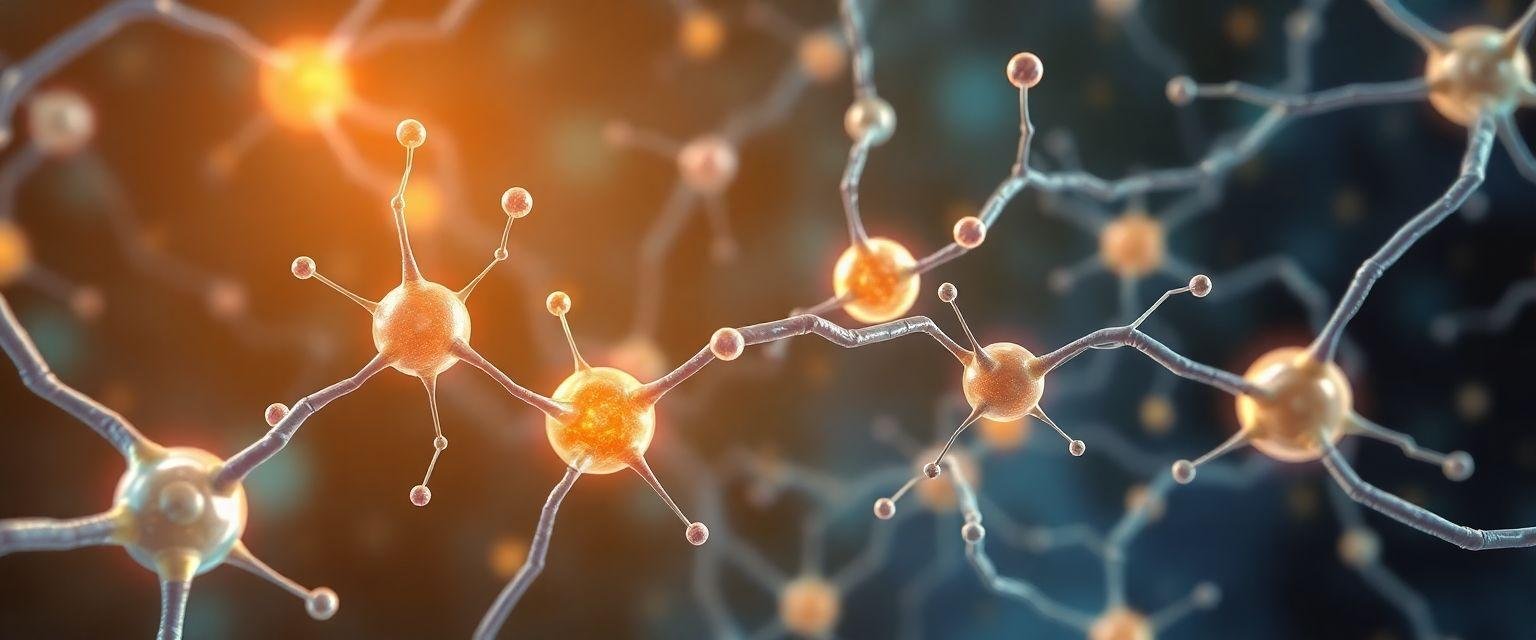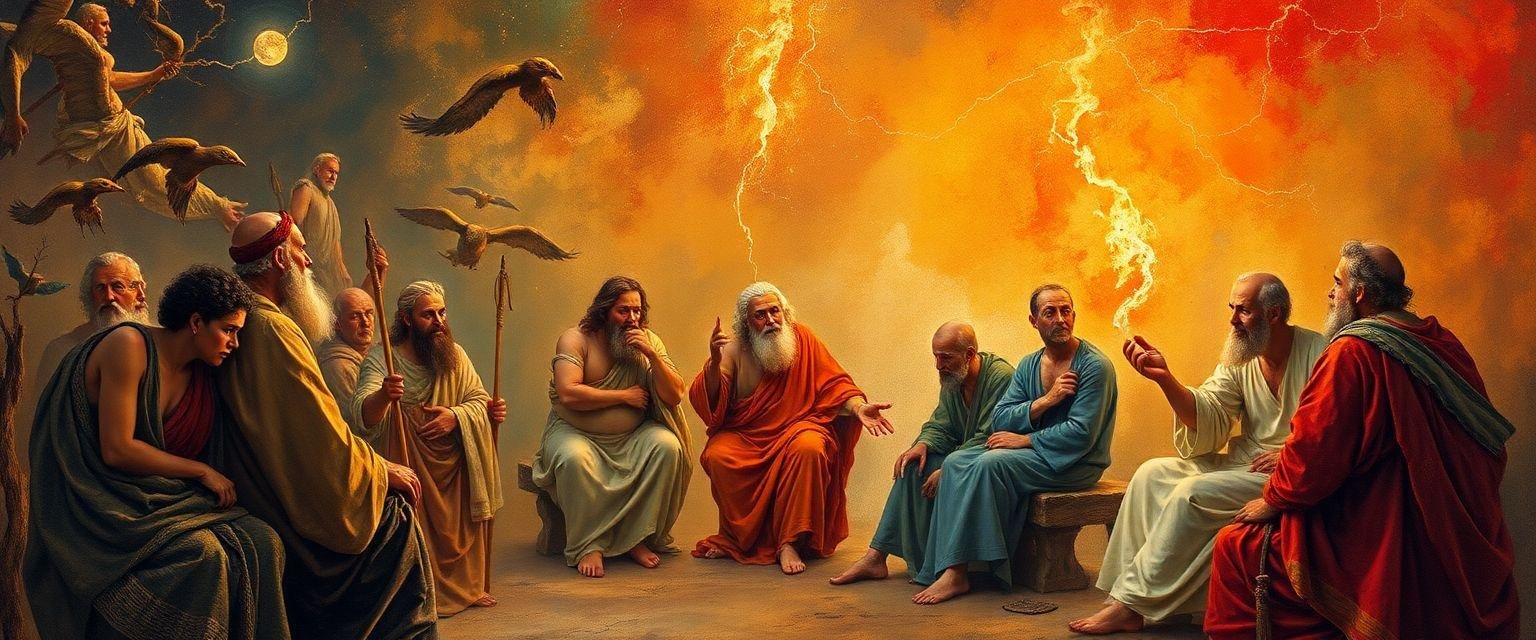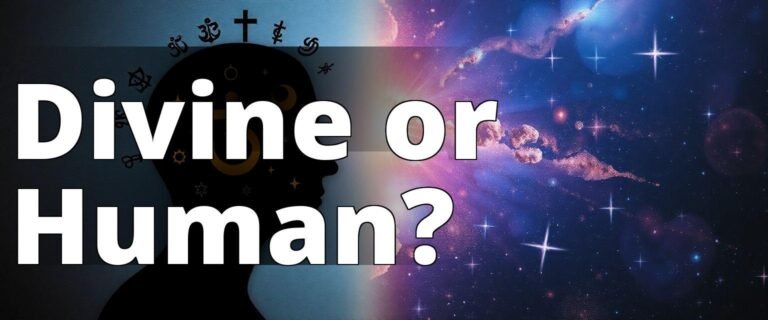The Science of Thought
Have you ever wondered how your brain reacts to thoughts, and whether those simple musings in your mind could potentially alter your reality? In delving into the science of thought, we uncover a fascinating intersection between cognitive processes and the supernatural, challenging the very fabric of what we perceive as reality. This exploration is not just about understanding the brain’s reaction to thoughts but also about opening the door to a realm where science meets the supernatural.
Understanding Brain Reactions to Thoughts
Explore the fascinating ways our brain processes thoughts and how they influence our perception of reality.
– Our brains encode thoughts through complex neural pathways, which can alter our emotional and physical states.
– Different types of thoughts, such as positive or negative, can trigger distinct reactions in brain chemistry, affecting mood and behavior.
– The brain’s response to thoughts can also be influenced by external factors, such as environment and social interactions, shaping our experiences and beliefs.
The Science of Thought: An Intersection of Mind and Reality
What happens when we think? Every thought triggers a complex cascade of biochemical events in the brain. Neurons fire, synapses connect, and neurotransmitters are released. According to research published in Nature Neuroscience, thoughts can change the physical structure of the brain through a process known as neuroplasticity. This means that our thoughts can literally reshape our brains over time.

Consider this: when you learn a new skill or habit, the brain forms new neural pathways. This is the same mechanism that reinforces negative thoughts or habitsif you repeatedly think something, your brain adapts to make that thought more prominent and easier to access. This can have profound effects on our mental health, behavior, and overall perception of the world.
Thought Provoking Question: If our thoughts can physically change our brain, to what extent can we control our reality through thought alone?
The Supernatural Connection: Beyond the Physical Realm
The idea that thoughts could influence reality beyond our physical selves touches on the supernatural. In quantum physics, there’s the concept of the observer effect, where the mere observation of a phenomenon inherently changes that phenomenon. This concept is strikingly similar to the idea that human consciousness can influence the physical world.

A groundbreaking study by Dr. Dean Radin at the Institute of Noetic Sciences found that focused human intention could affect the behavior of photons, tiny particles of light. This suggests that our thoughts might extend beyond the confines of our skulls and interact with the universe in ways we are only beginning to understand.
Thought Provoking Question: Could the universe itself be influenced by collective human consciousness?
The Brain’s Reaction to Thought: A Biochemical Symphony
Our brain’s reaction to thoughts is akin to a symphony, where various ‘instruments’ (neurotransmitters, hormones, and neural circuits) play in harmony to produce our experiences. When we think, the brain releases chemicals like dopamine and serotonin, which influence our mood and behavior. This biochemical reaction is why positive thinking can lead to a happier state of minda concept often touted in self-help circles but rooted in solid science.

However, the effects of thought are not always positive. Negative thoughts, anxiety, and stress can lead to the release of cortisol, a stress hormone that can have detrimental effects on health over time. This underscores the importance of managing one’s thoughts and maintaining mental well-being.
Insider Tip: Practicing mindfulness and meditation can help regulate these biochemical processes, promoting a healthier mental state.
Historical Context: Thoughts and Reality Through the Ages
Throughout history, thinkers and philosophers have pondered the power of thought. From ancient Greek philosophers like Plato, who proposed that reality is a shadow of our thoughts, to modern-day scientists exploring the edges of consciousness, the connection between thought and reality has been a persistent theme.

In the Eastern tradition, the concept of “mind over matter” has long been a staple of spiritual practices. Buddhist teachings often emphasize the power of the mind to shape an individual’s experience of reality, a concept that modern psychology is beginning to validate through studies on mindfulness and cognitive-behavioral therapy.
Thought Provoking Question: How do historical beliefs about thought and reality compare with modern scientific understanding?
Case Studies: Thought Experiments in Action
In the realm of psychology, thought experiments are a common tool used to explore the nature of consciousness and reality. One famous example is Schrödinger’s cat, a thought experiment that illustrates the paradoxes of quantum mechanics and the role of observation in determining reality.

Another fascinating case is the placebo effect, where the mere belief in the efficacy of a treatment can lead to real physiological changes. This phenomenon is a testament to the power of thought and belief in influencing physical health and healing processes.
Insider Tip: Keep a thought journal to track how your beliefs and expectations impact your daily life and decision-making.
Comparative Analysis: The Skeptics vs. The Believers
While the evidence supporting the power of thought is compelling, it is not without its skeptics. Critics argue that the supernatural implications of thought influencing reality are unscientific and lack empirical support. They point out that correlation does not imply causation, and much of the evidence can be attributed to placebo effects or cognitive biases.

On the other hand, proponents like Dr. Joe Dispenza, author of “Breaking the Habit of Being Yourself,” argue that the science of thought is on the cusp of revolutionizing our understanding of human potential. They believe that harnessing the power of thought could unlock new dimensions of reality.
Reference Link: For a detailed exploration of this debate, visit Scientific American.
Conclusion: Embracing the Power of Thought
In conclusion, the science of thought is a field ripe with potential and mystery. As we continue to explore the depths of the human mind and its connection to reality, we may find that the boundaries between science and the supernatural are not as clear-cut as we once believed. Whether we view thoughts as mere biochemical reactions or as potent forces capable of shaping reality, one thing is clear: the way we think profoundly affects our lives.

Embracing the power of thought means recognizing our potential to influence our minds and, potentially, the world around us. It encourages us to approach life with a sense of curiosity and wonder, continually questioning what we think we know.
For more insights into the intricate relationship between thought and reality, be sure to explore our exclusive video essay that pries open the door to a supernatural realm.
FAQs
Q.How does our brain react to supernatural thoughts?
A.Our brain activates areas related to emotion and belief when contemplating the supernatural.
Q.What happens in the brain during supernatural experiences?
A.Neuroimaging shows heightened activity in regions tied to perception and memory.
Q.Who studies the brain’s response to supernatural thoughts?
A.Neuroscientists and psychologists investigate how thoughts affect brain activity.
Q.How can thoughts influence our perception of the supernatural?
A.Thoughts can trigger neural pathways that shape our interpretation of experiences.
Q.What if I feel skeptical about the brain’s reaction to thoughts?
A.Skepticism can actually encourage deeper exploration and understanding of brain functions.
Q.How do beliefs affect brain reactions to supernatural phenomena?
A.Strong beliefs can lead to distinct neural responses that reinforce those beliefs.







